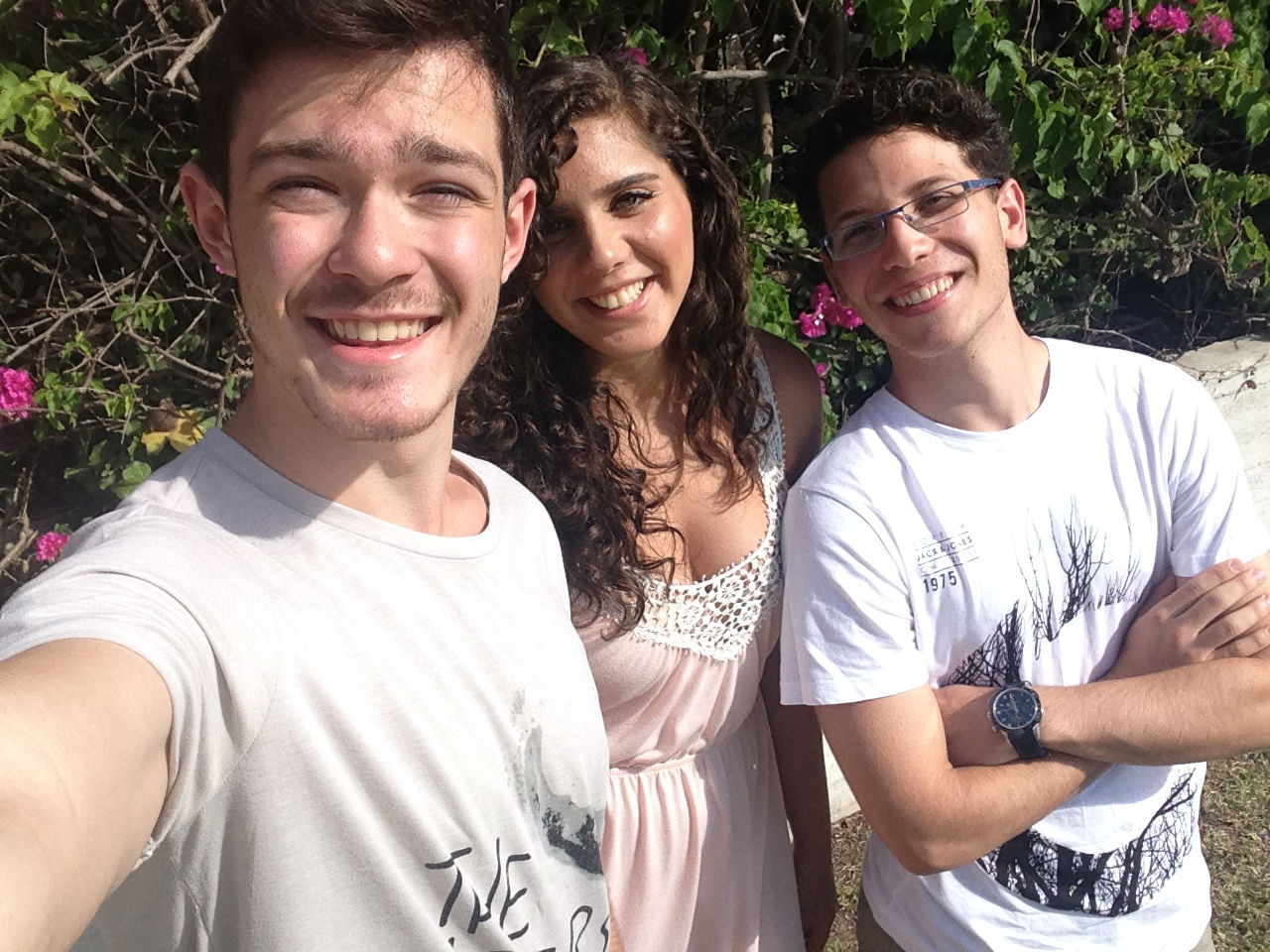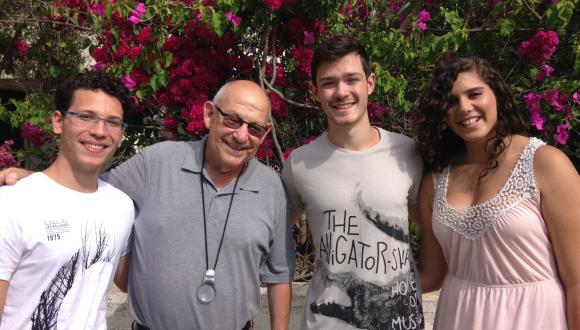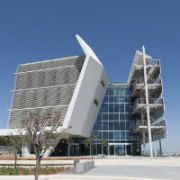Teen Water Scientists Win TAU Scholarships
A trio of eleventh-graders from the northern city of Karmiel set out to complete a school science project and wound up winning the Israeli round of the Stockholm Junior Water Prize, as well as first-year scholarships to Tel Aviv University. This summer, they will present their project in Sweden at the competition’s final international round, a feat they say they attribute in large part to the guidance of TAU’s Prof. David Gutnick of the George S. Wise Faculty of Life Sciences.
The three, Stas Reznikov, Chen Zamostianu and Rotem Ben David, focused their junior year project at Ort "Psagot" High School on seeking out a new, cost-effective and environmentally friendly way to clean up oil spills in the ocean and on the shoreline. The group’s research led them to the idea of harnessing bacteria that feed off of oil and devising a way to have the bacteria immediately released at the spill site. Oil-eating bacteria are non-toxic, inexpensive, can be used effectively in water and on land, and they continue to multiply as long as there is oil to metabolize.
In their search for more information on oil-eating bacteria online, the teens came across Prof. Gutnick’s name and learned about his and Prof. Eugene Rosenberg’s pioneering research at TAU in the microbial degradation of crude oil. Recognizing the opportunity to gain invaluable insight, Chen, Stas and Rotem contacted Prof. Gutnick to see if he could give them some pointers. The call sprouted a months-long partnership, wherein the teens sought Prof. Gutnick’s guidance and knowledge to ensure that their project would be as thorough and scientifically accurate as possible.
“These bright-eyed, very interesting kids showed up with a PowerPoint presentation,” said Prof. Gutnick. “They were very, very much above high school level. It was clear that these kids were extremely devoted and serious. They were just terrific.”
Prof. Gutnick helped the team of budding scientists learn to isolate oil-eating bacteria and to test its ability to clean up an oil spill in laboratory conditions. After several months of rigorous and repeated experiments, the teens found that the bacteria that they had isolated from soil in their school’s garden was able to clean up 85% of the oil in their simulated oil spill in only three days. For comparison, the current clean-up rate for chemical dispersants is just 20% over an unlimited period of time.
The team’s project incorporates the oil-eating bacteria into a unique three-stage spill-prevention mechanism to be installed inside oil tankers. The first stage is a sensor that sends real-time alerts if the oil level drops due to a leak. The second stage uses the sensor’s information to determine the size of the leak, and activates a system that physically plugs the leak with spherical plugs that are housed within the tank, provided the leak is small enough. And the third stage, for leaks too big to be physically plugged, kicks off the release of oil-eating bacteria that are housed adjacent to the tank, starting the clean-up process immediately, before too much damage is done. If all oil tankers were to be fitted with the team’s three-part system, the threat of damage caused by oil spills could be greatly reduced.
Eight months into their research, Chen, Stas and Rotem revealed to Prof. Gutnick that their teacher, sensing the uniqueness and importance of their work, had enrolled them in the Israeli Stockholm Junior Water Prize competition. The competition, organized on the TAU campus each year by Prof. Emeritus Gedeon Dagan of the Iby and Aladar Fleischman Faculty of Engineering, was held in May, with 11 teams of young Israelis vying for the prize. “We were shocked -- we didn’t think it would get that far,” Chen said of making it to the national competition, where they were the youngest group to participate. They had to present their project in Hebrew for each group of judges, and then, at a moment’s notice, in English for the Swedish ambassador. “The first time we presented was the hardest because we couldn’t tell at all what the judges were thinking – they kept very straight faces,” Stas said.
The prize for winning the Israeli national competition is twofold: A first-year scholarship to Tel Aviv University, and a week-long trip to Stockholm to compete for the international Stockholm Junior Water Prize with contestants from 30 other countries that includes dining with the Swedish Royal family.
 Reflecting on how far they have come as a team, Chen said, “When I look back at where we were at the beginning of the year – we have matured so much since then. We learned so many important life skills: Presenting and writing scientific articles in English, writing professional emails and public speaking.” Rotem recalled the challenges and triumphs of learning to work as a team “even as emotions were running high right before the competition.”
Reflecting on how far they have come as a team, Chen said, “When I look back at where we were at the beginning of the year – we have matured so much since then. We learned so many important life skills: Presenting and writing scientific articles in English, writing professional emails and public speaking.” Rotem recalled the challenges and triumphs of learning to work as a team “even as emotions were running high right before the competition.”
The journey has been equally exhilarating for Prof. Gutnick, who is pleased that the three eager students plan to broaden the scope of their project with his guidance during the coming year, despite not being required to work on it any further. “I’ve had many students over the years, at least 20 PhD students, 55 master’s students and thousands of undergraduate students, but this has been even more exciting…They are fun to be with and fun to work with.”






